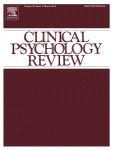- Joined
- Feb 15, 2009
- Messages
- 18,031
- Reaction score
- 23,783
With such inexperience its hard to say with certainty, but I've always wanted to be the clinician that answers calls and handles crisis. I guess this desire will dampen in time once I'm exposed to harsh realities, but I don't think it would ever fade completely. Its a huge honor to be the one whom help is asked of and I'd hope I'd have the empathy and patience to really reach some people. And I do still envision that at 2 am after a grueling shift, maybe especially. Its all I've ever wanted to do.
Everyone...does that sound more like a psychologist or psychiatrist? It's my understanding that physicians see more call, and possibly more SMI in general, but I'm not sure.
Wholly dependent on setting and your job. You can have this in either profession if you want.

